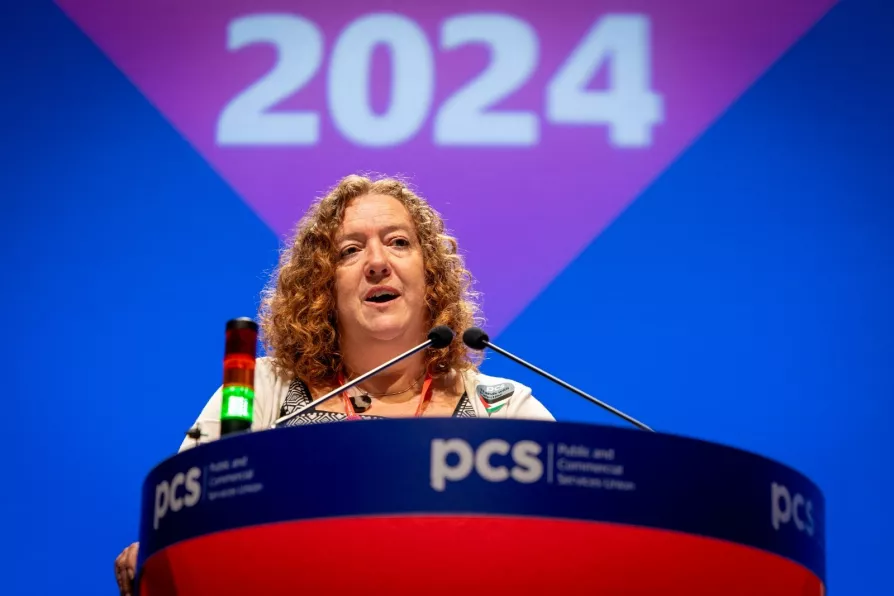Civil servants forced to play ‘three dimensional chess’ to get pay rise due to Tory anti-strike laws, PCS chief says

 Fran Heathcote addresses PCS conference, May 21, 2024
[Andy Aitchison]
Fran Heathcote addresses PCS conference, May 21, 2024
[Andy Aitchison]
CIVIL servants are forced to play a “three-dimensional chess game” in their fight for pay restoration this year due to Tory anti-union laws, PCS general secretary Fran Heathcote said today.
She told the Morning Star that the 50 per cent turnout threshold for an industrial action ballot to be valid had limited the union’s options in planning national strikes this summer.
Delegates at this year’s conference in Brighton will need to make “very careful tactical judgments going forward,” Ms Heathcote said after 84 per cent of PCS members backed strike action earlier this month, but only 62 of the 171 bargaining units balloted reached the threshold.
Similar stories














